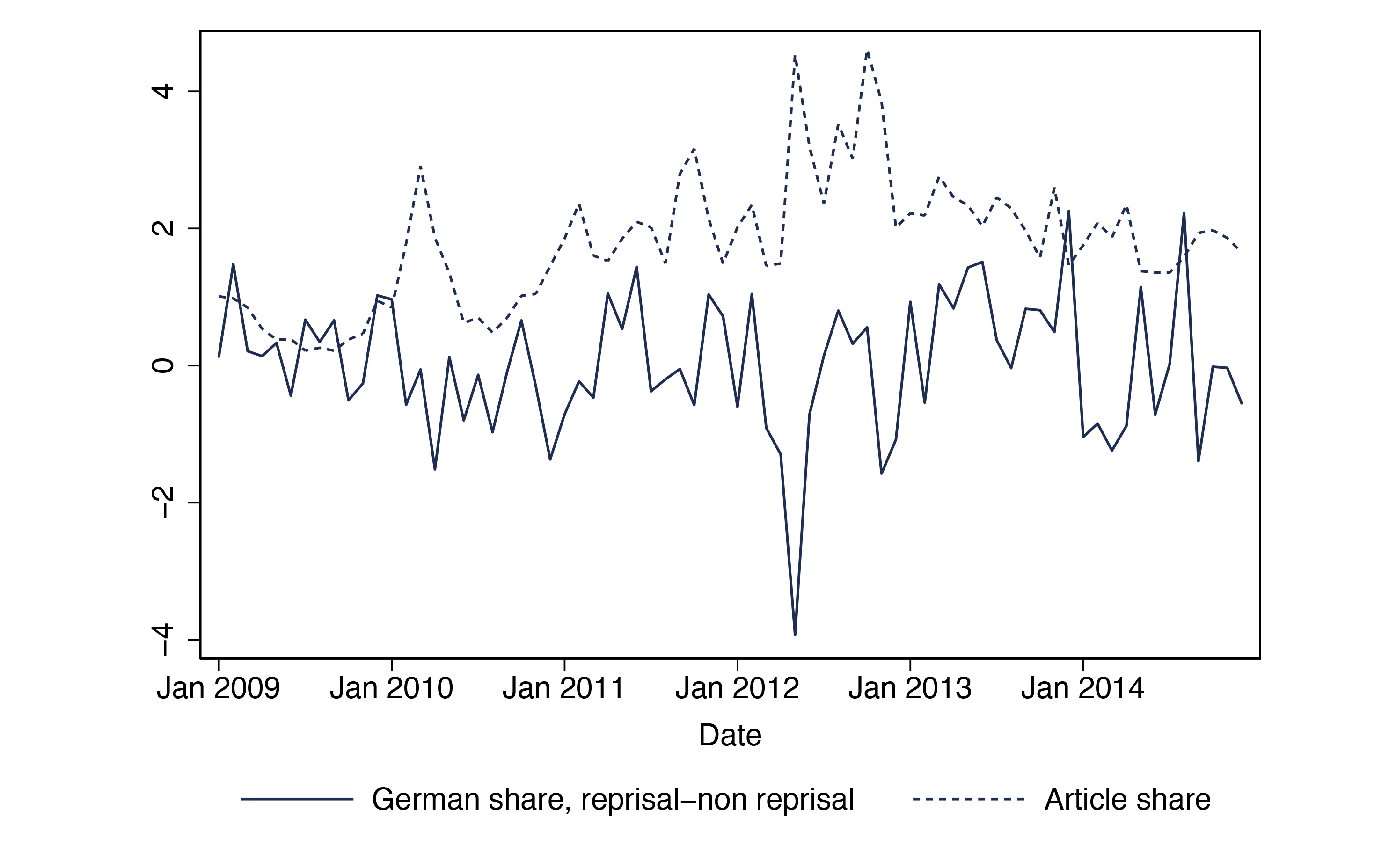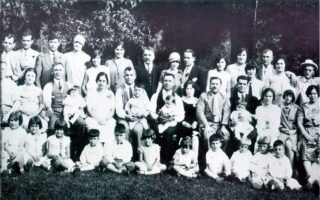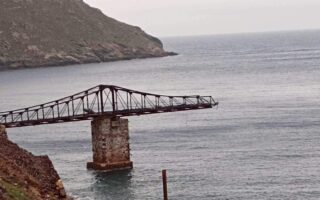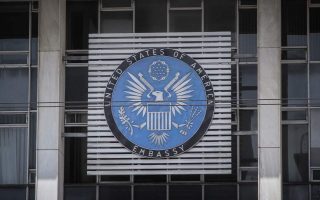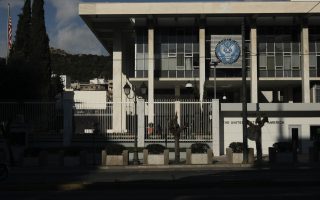Collective memory in the driver’s seat
Tension between Athens, Berlin during Greek debt crisis hit German car sales in WWII reprisal areas, study finds
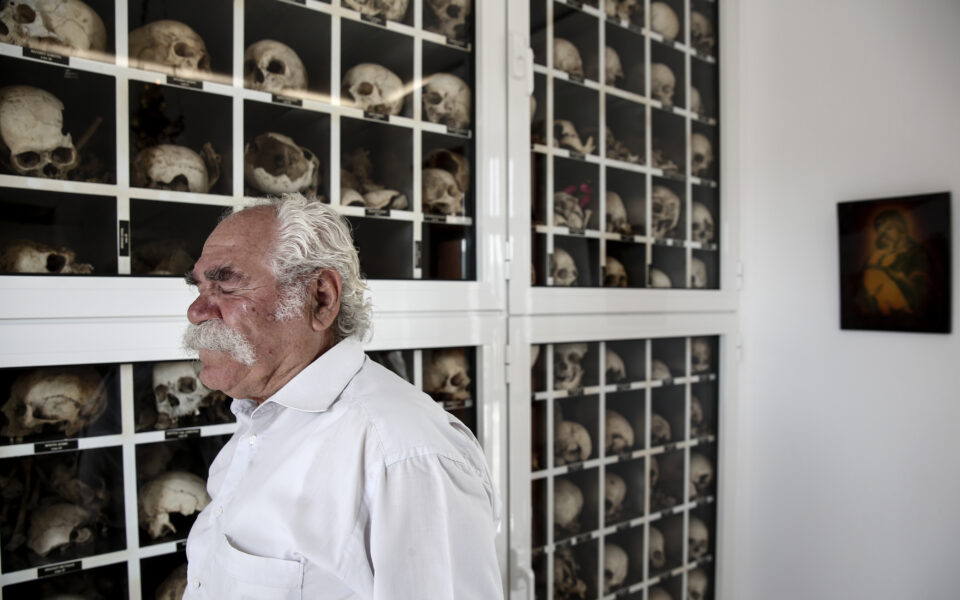
Spikes in tension between Athens and Berlin during Greece’s 10-year financial crisis caused a dip in German car sales in areas that suffered from Nazi atrocities during the Second World War, according to a study published in the American Political Science Review.
According to the report, titled “Collective Remembrance and Private Choice: German-Greek Conflict and Behavior in Times of Crisis,” the drop in sales was steeper in communities bearing official “martyr” status, a designation associated with state-sanctioned commemoration of the disaster.
“Our findings show that historical memory matters for people’s behavior. When present events remind us of the past, collective memory resurfaces and affects our decisions,” said Vasiliki Fouka, political scientist at Stanford University, who co-authored the study with Hans-Joachim Voth, economics professor at University of Zurich.
Researchers analyzed data on new car registrations across 51 regional units, comparing those with a big share of reprisal towns against their unaffected counterparts (36 suffered reprisals, while 25 include martyred towns), during peaks in tension between Germany and Greece which were calculated based on the frequency of relevant media reports (in fact, the authors applied a machine-learning algorithm on the online archive of Kathimerini newspaper). They found an up-to-17 percent drop in areas most exposed to wartime violence.
The difference between regional units with a heavy concentration of officially recognized martyred towns and the rest was 5.7 percent on average. The discrepancy suggests that official commemoration involving symbolic actions such as memorial services and timed remembrances, parades, monuments, museums and so on reinforces memory preservation among those affected and their descendants. Such institutionalized practices furthermore transmit memory to members of the community with no personal or family experience of past violence. New arrivals also appear to be affected.
“Public commemoration preserves a latent collective memory that is ready to become activated when triggered by salient events,” said Fouka.
“Among Greek towns and villages that experienced German reprisals, those that commemorated the atrocities in some way were more likely to draw an association between the behavior of Germany during the debt crisis and that of the German army during the war. As a result, they were more likely to buy fewer German cars,” said Fouka, adding that evidence on buying intentions shows that it was distaste, not financial strain, which stopped consumers in reprisal towns from purchasing what is an “iconic German product.”
The authors admit they could not establish whether their findings on consumer behavior are mainly a reflection of personal preference – i.e. greater dislike of Germany – or of concern about the social acceptability of purchasing a German product.
The paper did not discuss whether collective memory can be manipulated to produce behavioral effects.

Dormant animosities
Berlin’s hardline economic positions during Greece’s debt crisis, which brought the nation to the brink of a euro exit while shrinking gross domestic product by 25 percent, fueled resentment against Germany and revived long-dormant animosities. Anti-German sentiment was accentuated by populist politicking and tabloid reports employing derogatory or stereotypical language and imagery. When Angela Merkel visited Athens in October 2012, protesters burned effigies of the then German chancellor in Nazi gear.
Hitler’s forces invaded Greece in April 1941. Around 300,000 Greeks died in the occupation, mostly of starvation. An estimated 130,000 were executed in brutal reprisals for acts of resistance or sabotage.
In one of the most abhorrent crimes of WWII, near the town of Kalavryta in the Peloponnese, at least 670 men and boys were massacred on December 13, 1943, in retaliation for the killing of German soldiers.
On June 10 the following year, a Waffen-SS unit burnt the village of Distomo, near Delphi, to the ground and killed 218 civilians in an act of revenge for a partisan ambush on German troops near the village.
Greece up to this day claims Germany owes it more than 300 billion euros in damages for the Nazi occupation of the country.
